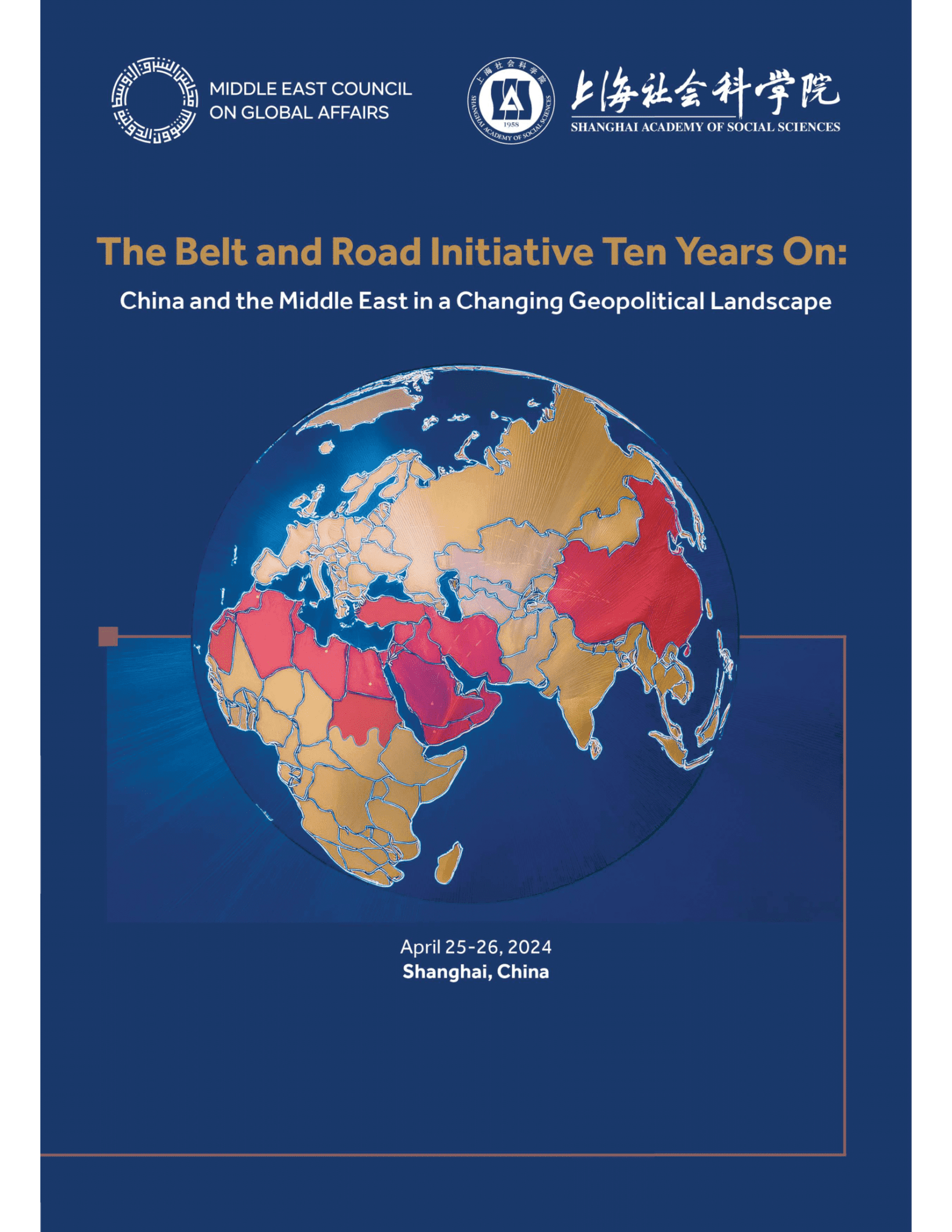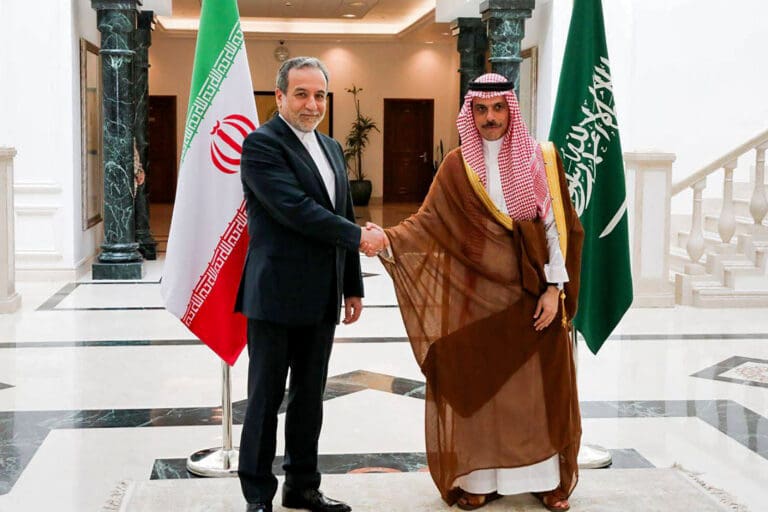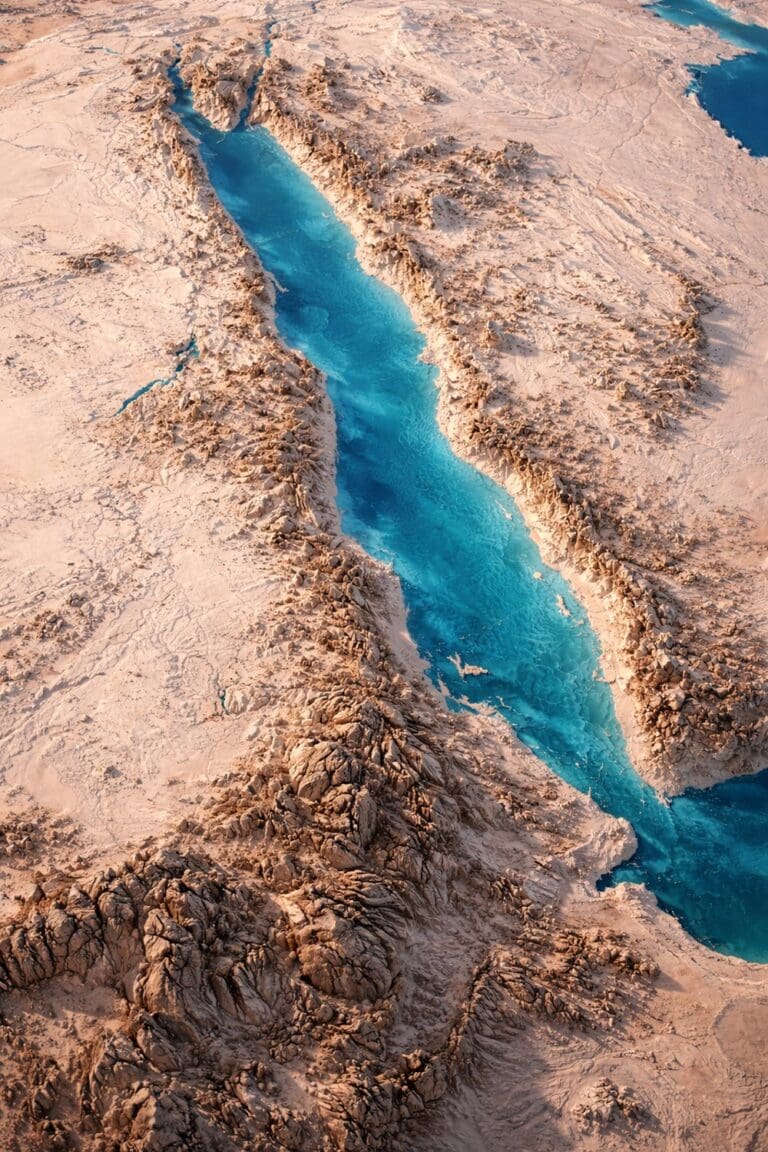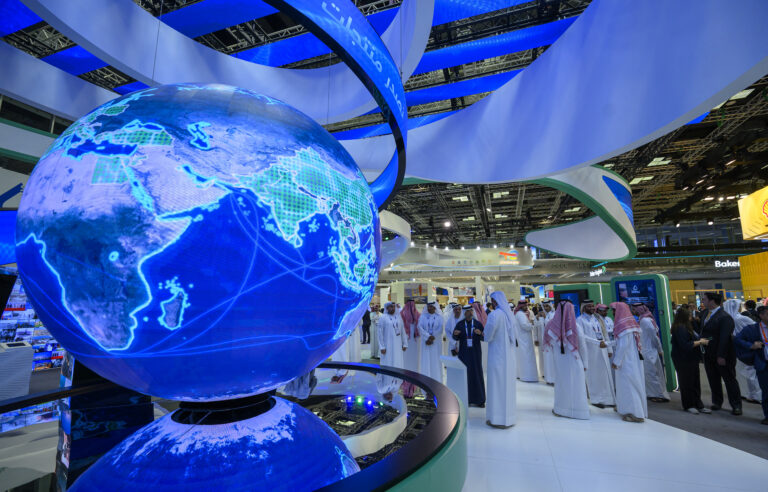
The Belt and Road Initiative Ten Years On:
China and the Middle East in a Changing Geopolitical Landscape
Affiliated Publication, October 2024
Executive Summary
Emerging Multipolar Order
China’s relations with the Middle East and North Africa (MENA) region are developing against the backdrop of an emerging multipolar world order. With the United States’ future role in regional security uncertain, MENA states are gradually shifting their sights to new horizons. Since the Belt and Road Initiative’s (BRI’s) launch in 2013, economic cooperation between China and the MENA region has grown significantly across various areas. However, China’s expanding engagement faces challenges including U.S. pressure to limit Beijing’s political and security cooperation with MENA countries.
Nascent shifts in global order are also driving great power competition in the Middle East and North Africa. The launch of the India-Middle East-Europe Economic Corridor (IMEC) last year signifies the West’s efforts to counter the BRI’s influence. These comprehensive projects also highlight the importance of regional and global connectivity in shaping great power-MENA states’ relations. Competitive dynamics will be consequential to the future of China’s relations with the Middle East and regional powers will have to strike a careful balance between their traditional partners and emerging alliances.
Expanding Diplomatic Efforts, Limited Security Role
In 2023, China brokered the Saudi-Iran peace deal which signaled Beijing’s aspirations for a wider political role in the MENA region. While China’s diplomatic footprint is expanding, its foreign policy continues to adhere to the East Asian nation’s long-standing principles of non-alignment and non-intervention. Escalating tensions in the Middle East might challenge this policy and push Beijing to play a wider role in regional politics and security. China will likely expand its mediation efforts and support regional peace initiatives but will come short of extending security guarantees.
Beijing’s political ties with the Middle East will also be shaped by the region’s growing disillusionment with the West. The United States’ unwavering support for Israel in its war on Gaza, since late 2023, is casting doubt regarding Washington’s commitment to the MENA region’s security and driving regional powers to pursue alternative partners. The launch of frameworks such as the Global Security Initiative (GSI) in 2022 will be crucial in shaping the future of China-MENA political cooperation, but many Middle Eastern and North African states will likely maintain close relations with the West considering Washington’s role as the key architect of the region’s security landscape.
Energy Remains Central to China-MENA Relations
The launch of the BRI in 2013 ushered a new era of China-MENA economic cooperation. China’s investments in key infrastructure projects across the region have been a critical driver of the Middle East and North Africa’s development. However, the expansion of China’s investments is challenged by many MENA states’ limited financing capacities. This has also raised concerns over a potential debt trap in which some borrowing countries could find themselves.
Despite efforts to diversify economic ties, energy remains integral to many MENA nations’ economies. Beijing is still the world’s largest oil importer, making the Middle East and North Africa an indispensable economic partner. Energy is also paving the way for developing strategic relations between China and regional powers. Looking ahead, energy will maintain its centrality, but global efforts toward facilitating the energy transition and China’s efforts to increase its energy self-sufficiency will be instrumental to the future of China-MENA economic ties. The Gulf’s abundant liquefied natural gas (LNG) supplies make it an important partner in this transition. China’s strides in the wide-scale adoption of clean energy will further drive its cooperation with MENA states in facilitating an energy transition.
Chinese Technology Enhances MENA’s Strategic Autonomy
Emerging technologies and infrastructure development are playing a significant role in Middle East and North African states’ strategic coordination with China. Notably, leading Chinese technology provider Huawei is expanding regional access to advanced technologies. Political and strategic dimensions underlie growing technology ties between China and Middle East and North African countries.
The acquisition of Chinese technology is contributing to the MENA’s economic modernization and increasing regional powers’ strategic autonomy. Chinese technology is crucial for the ambitious national development plans of various MENA powers, including Saudi Arabia’s National Vision 2030. However, mounting U.S.-led pressure on the MENA to limit technology cooperation with China may complicate relations. Such pressure will test the region’s balancing act between Beijing and Washington, leaving a difficult road ahead for MENA countries’ utilization of Chinese technology.
Cultural Exchange to Play a Pronounced Role in the Future of the BRI
Person-to-person cultural exchange is increasingly defining China-MENA relations. The BRI’s promotion of global connectivity is highlighting cultural relations between China and the Middle East. Various countries across the region are now host to Confucius Institutes. These institutes reflect China’s expanding soft power footprint. Beijing’s emphasis on promoting cross-civilizational dialogue—through President Xi Jinping’s Global Civilization Initiative (GCI)—is also centering the discourse around cultural connectivity in China’s MENA diplomacy.
The wide-reaching influence of online platforms such as TikTok further reflects China’s increasing social media influence. Expanding social and cultural connections between China and the Middle East will also enhance cooperation in key areas such as climate action. Elevated water scarcity levels and rising global temperatures make addressing climate change imperative for the MENA region’s future. China’s leading efforts on this front can inform the regional climate policies.
China’s Foreign Relations: Peace Through Development
Rapid shifts in global order are heightening pressure on Beijing to consolidate its role as a political power. The MENA is increasingly looking to China’s leadership as a potential alternative to the U.S.-led global order. As such, Beijing is poised to play an important diplomatic and political role in the region, but its approach will be grounded in harnessing peace through development. In driving development, China holds that peace can be achieved for the Middle East and North Africa at large. Mediation will also be key to China’s diplomacy in the region.
China will continue to cultivate comprehensive relations with the MENA states and affirm its commitment to regional prosperity. The growth of multilateral coordination, through the BRICS and the Shanghai Cooperation Organization (SCO) for instance, will also be vital to boosting Chinese-MENA cooperation. Yet, security concerns in the Middle East and aspirations for a wider Chinese security presence in the area will complicate the future of political ties between Beijing and MENA capitals.
Related
Events

The Middle East Council on Global Affairs (ME Council) co-hosted a workshop titled "The Belt and Road Initiative Ten Years On: Challenges, Opportunities, and Prospects for China-Middle East Cooperation" in partnership with the Shanghai Academy of Social Sciences (SASS). The event took place on April 25-26, 2024, at SASS.
learn more


